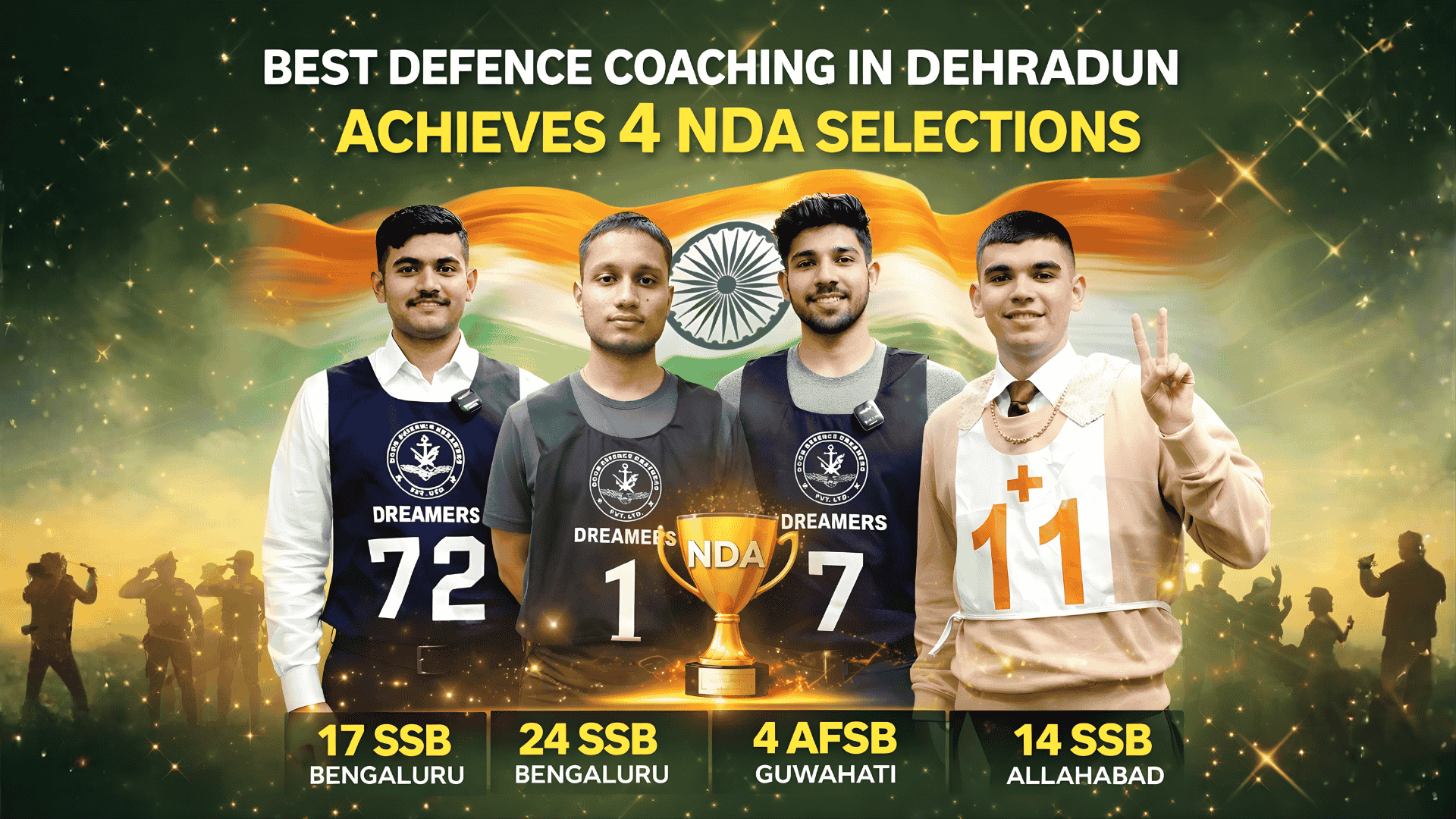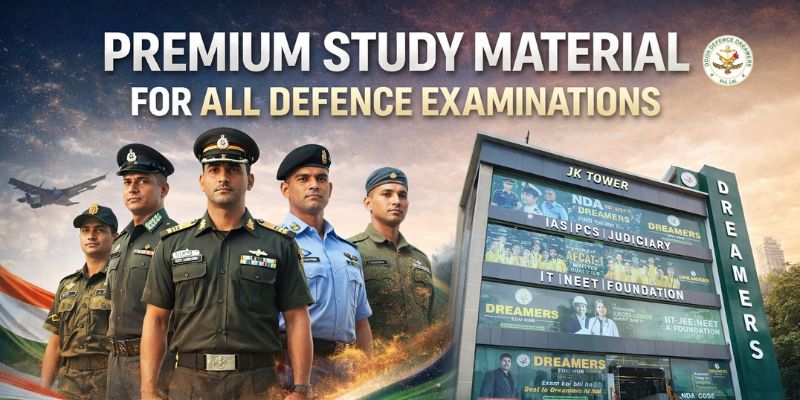The Air Force Common Admission Test (AFCAT) is conducted to select candidates for Flying, Ground Duty (Technical), and Ground Duty (Non-Technical) branches of the Indian Air Force. After clearing the AFCAT written exam, candidates are called for the AFSB (Air Force Selection Board) interview, which includes several stages of evaluation. One of the most critical and challenging components is the psychological test.
The psychological test is designed to assess your personality, thought process, and officer-like qualities (OLQs) — such as leadership, decision-making, courage, team spirit, and integrity. These tests are conducted by trained psychologists and are meant to reveal your natural behaviour and mindset, not your knowledge.
This guide will break down each test and provide strategies to prepare effectively.
What is the AFSB Psychological Test?
The psychological test at AFSB consists of four main components:
Thematic Apperception Test (TAT)
Word Association Test (WAT)
Situation Reaction Test (SRT)
Self-Description Test (SDT)
Each test evaluates your personality traits under different psychological conditions. You are expected to respond quickly, spontaneously, and honestly, revealing how you think, behave, and react in various situations.
1. Thematic Apperception Test (TAT)
What It Is:
You are shown 12 pictures (including one blank slide), each for 30 seconds. You must write a short story in the next 4 minutes based on what you saw.
Purpose:
To analyze your perception, imagination, problem-solving ability, and personality through the story.
Preparation Tips:
Story Structure: Always structure your story with a beginning (situation), middle (action), and end (result). Highlight a positive and practical resolution.
Character Building: Identify a central character (usually someone your age) and show how they faced and solved a problem.
Avoid Negative Emotions: Avoid stories that focus on death, depression, failure, or unrealistic heroism.
Use Common Scenarios: Build stories around familiar settings like schools, villages, defence life, or social issues.
Practice Regularly: Use sample TAT pictures to practice. Time yourself strictly.
2. Word Association Test (WAT)
What It Is:
You are shown 60 words, one at a time, for 15 seconds each. You must write the first sentence that comes to your mind in response to each word.
Purpose:
To check your subconscious thought process and personality traits.
Preparation Tips:
Be Natural and Positive: Respond spontaneously with positive, action-oriented sentences. Don’t try to force a perfect sentence.
Avoid Negativity: For words like “death,” “war,” “failure,” your response should show maturity and a solution-oriented mindset.
Relate to OLQs: Try to indirectly show qualities like leadership, initiative, honesty, discipline, and courage.
Short Sentences: Keep responses short and meaningful — aim for 5–8 words.
Practice Daily: Prepare with word lists and practice writing within 15 seconds.
Example:
Word: Failure
Good Response: Failure teaches the value of persistence.
Poor Response: I fear failure in life.
3. Situation Reaction Test (SRT)
What It Is:
You are given 60 real-life situations and must write your response to each within 30 seconds.
Purpose:
To assess your practical thinking, decision-making, and reaction under pressure.
Preparation Tips:
Be Practical & Responsible: Responses should show maturity, logic, and responsibility.
Officer-Like Qualities: Show initiative, courage, sense of duty, and cooperation.
Avoid Emotional Reactions: Don’t react emotionally or negatively. Never leave a situation unresolved.
Time Management: You may not complete all 60, but quality matters more than quantity. Aim to complete at least 45–50.
Write Action-Oriented Answers: Your response should indicate what you would do — not what you would feel or think.
Example:
Situation: You are on your way to the SSB and witness a road accident. What will you do?
Good Response: Help the injured, call for medical aid, inform the police, and continue to SSB.
4. Self-Description Test (SDT)
What It Is:
You have to write 5 paragraphs on the following:
What your parents, teachers, friends, and yourself think about you.
What kind of person you aspire to become.
Purpose:
To understand your self-perception and awareness of strengths and weaknesses.
Preparation Tips:
Be Honest but Positive: Accept minor weaknesses, but show that you’re working to improve them.
Consistency: Your self-image should align with how others view you.
Highlight OLQs: Include traits like punctuality, sincerity, teamwork, and leadership.
No Boasting: Stay humble. Avoid exaggeration.
Practice Writing: Create your SDT, revise it often, and refine it until it reflects your true personality.
General Preparation Strategies
1. Know Yourself Well
Keep a notebook of your life experiences, strengths, weaknesses, and key life lessons.
Think deeply about situations where you showed leadership, handled a crisis, or helped others.
2. Officer-Like Qualities (OLQs) to Develop
Sense of responsibility
Teamwork
Confidence
Initiative
Courage
Effective communication
Integrity and honesty
Time management
Adaptability
3. Regular Practice
Practice all four tests in a timed environment.
Evaluate your responses critically. Ask: Does this reflect OLQs? Is it natural?
Take mock tests under real conditions.
4. Read and Write Daily
Improve your vocabulary and writing speed.
Read newspapers, biographies of military leaders, and motivational books.
5. Get Feedback
Ask mentors, SSB experts, or friends to review your stories and responses.
Take constructive feedback positively and improve.
6. Stay Calm & Confident
Psychological tests are not about being perfect but being genuine.
Don’t memorize stories or copy others. Your personality is what matters most.
Common Mistakes to Avoid
Writing artificial or forced responses.
Showing negative or emotional reactions in stories.
Copying responses from others.
Ignoring time constraints while practicing.
Avoiding self-introspection and blindly practicing templates.
Final Thoughts
The AFCAT psychological test is not about academic brilliance or theoretical knowledge — it’s about who you are as a person. The assessors want to see if you have the personality traits suitable for an officer in the Indian Air Force.
To prepare well:
Be self-aware
Practice honestly
Respond spontaneously
Show genuine officer-like qualities
Above all, be confident in your unique personality, and remember — the goal is not to impress, but to express your true potential.




























